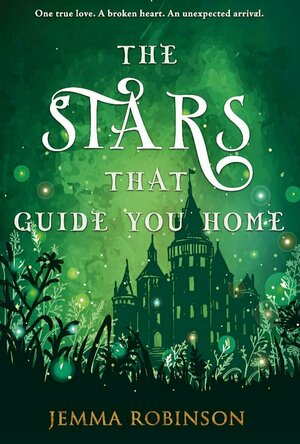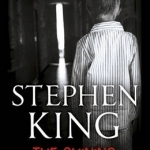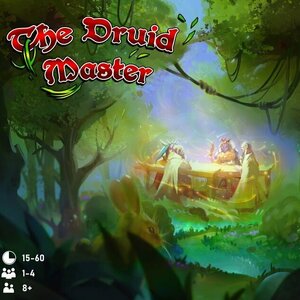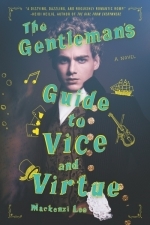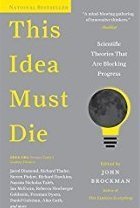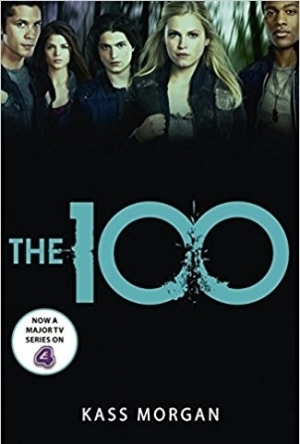Search
Search results
Lottie disney bookworm (1056 KP) rated The Stars That Guide You Home in Books
Oct 25, 2021
Wow.
Just…wow.
Now I make no secret of the fact that I am a crier. Christmas TV ads, airport arrivals halls, old men crying, anything has the ability to set me off blubbing! So I am never entirely surprised when I start crying at a book, even my husband doesn’t mock me anymore. But this book? THIS BOOK had me crying the entire way through and just when you thought life for the characters couldn’t get any worse…Jemma Robinson says hold my coat!
Sophia and Tom live in a quaint little farmhouse in the town of Lowshore. Their life is a simple one but their happy marriage practically radiates from the page. However, Sophia never told her husband about her past and that past is about to catch up with her!
Whilst Tom is at work, Sophia is kidnapped from her happy home and forced to live the life that she tried so desperately to escape. Beaten, abused and powerless, Sophia manages to find two people worthy of her trust but will she ever escape? Can she ever regain the life that she used to have with Tom?
The beauty of this book is that it revolves around its characters. There is very little world building here but, honestly, it isn’t needed. Nothing matters to Tom and Sophia except one-another and that is reflected in Jemma Robinson’s writing style.
The characters themselves stay with you long after the final page: Sophia wears her heart on her sleeve, Tom is steadfast and passionately protective, James and Annalise are, in contrast, calm and collected individuals but Edmund is nothing short of a psychopath!
Edmund is no fairytale villain, despite the Lord Farquaad vibes I was getting from him. Robinson’s antagonist wouldn’t be out of place in Game of Thrones: he is truly revolting, controlling and revels in his absolute power over everything and everyone in his kingdom.
The Stars That Guide You Home is marketed as historical romance, not a fairytale, and with its medicine, photographs and labour camps then it does seem too modern to be considered a fairytale. However, I would argue that castles, arranged marriages, medieval torture and absence of any morally grey characters could push this into the category of dark fairytale.
There are a number of trigger warnings within this novel that I want to highlight. This is by no means a YA book – it is definitely Adult Fiction or New Adult at a push. These trigger warnings include rape, physical and mental abuse, animal cruelty, torture (in detail), kidnap, burns, suicide, miscarriage and general violence.
Dark fairytale still doesn’t seem enough… Sinister fairytale might just do it!
The Stars That Guide You Home is simultaneously beautiful, horrifying and inspiring. This book will break your heart over and over again and keep you coming back for more. Thank you to The Book Network for the opportunity to review this amazing novel, and thank you to Jemma, even though you did make me cry for 486 pages!
Just…wow.
Now I make no secret of the fact that I am a crier. Christmas TV ads, airport arrivals halls, old men crying, anything has the ability to set me off blubbing! So I am never entirely surprised when I start crying at a book, even my husband doesn’t mock me anymore. But this book? THIS BOOK had me crying the entire way through and just when you thought life for the characters couldn’t get any worse…Jemma Robinson says hold my coat!
Sophia and Tom live in a quaint little farmhouse in the town of Lowshore. Their life is a simple one but their happy marriage practically radiates from the page. However, Sophia never told her husband about her past and that past is about to catch up with her!
Whilst Tom is at work, Sophia is kidnapped from her happy home and forced to live the life that she tried so desperately to escape. Beaten, abused and powerless, Sophia manages to find two people worthy of her trust but will she ever escape? Can she ever regain the life that she used to have with Tom?
The beauty of this book is that it revolves around its characters. There is very little world building here but, honestly, it isn’t needed. Nothing matters to Tom and Sophia except one-another and that is reflected in Jemma Robinson’s writing style.
The characters themselves stay with you long after the final page: Sophia wears her heart on her sleeve, Tom is steadfast and passionately protective, James and Annalise are, in contrast, calm and collected individuals but Edmund is nothing short of a psychopath!
Edmund is no fairytale villain, despite the Lord Farquaad vibes I was getting from him. Robinson’s antagonist wouldn’t be out of place in Game of Thrones: he is truly revolting, controlling and revels in his absolute power over everything and everyone in his kingdom.
The Stars That Guide You Home is marketed as historical romance, not a fairytale, and with its medicine, photographs and labour camps then it does seem too modern to be considered a fairytale. However, I would argue that castles, arranged marriages, medieval torture and absence of any morally grey characters could push this into the category of dark fairytale.
There are a number of trigger warnings within this novel that I want to highlight. This is by no means a YA book – it is definitely Adult Fiction or New Adult at a push. These trigger warnings include rape, physical and mental abuse, animal cruelty, torture (in detail), kidnap, burns, suicide, miscarriage and general violence.
Dark fairytale still doesn’t seem enough… Sinister fairytale might just do it!
The Stars That Guide You Home is simultaneously beautiful, horrifying and inspiring. This book will break your heart over and over again and keep you coming back for more. Thank you to The Book Network for the opportunity to review this amazing novel, and thank you to Jemma, even though you did make me cry for 486 pages!
Hadley (567 KP) rated The Shining in Books
Apr 6, 2019
Different from the movie (1 more)
Well written
Contains spoilers, click to show
In his most well-known horror story, 'The Shining,' which is either a ghost story or the collapse of a man's mental state, Jack Torrance, a recovering alcoholic who just lost his job teaching at a school, gets hired to be the Winter caretaker of the infamous Overlook Hotel. In this book, the readers follow Jack into a nervous breakdown, as well as his possession by the ghosts of this hotel.
While the Torrance's seem like every other family - a small boy and moving to a new town - we find out that their son, Danny, has special abilities that help him to see things that may or may not happen in the future.
Soon after the family arrives to take over the hotel for the Winter, Danny meets a man named Hallorann - a chef at the hotel - who has the same abilities as him, which he calls 'Shine:' "What you got son, I call it shinin' on, the Bible calls it having visions, and there's scientists that call it precognition. I've read up on it, son. I've studied on it. They all mean seeing the future. Do you understand that?" Hallorann tells Danny.
Why does Danny, or anyone for that matter, have the Shine? King doesn't explain this in the book, it just seems to be something specific people are born with, even Danny's parents take him to a doctor before the snowfall hits to figure out what is going on,but even the doctor believes it's just a child's overactive imagination. Even so, Danny continues to have visions: one is of the room 217 in the Overlook, which even Hallorann told him to never go inside, and the other is of a creature-like man swinging a roque mallet, yelling about someone needing to take their medicine,"Come out! Come out, you little shit! Take your medicine!" We,also,meet his imaginary friend, Tony, who is the one whom continues to show Danny these visions over and over.
Unlike the movie, 'The Shining' book stands on it's own as an almost completely different story, even having Jack wielding a roque mallet and not an axe. Also the infamous scene of the Grady twins showing up in a hallway, asking Danny to play with them, never happened in the book; Hallorann also survives Jack's attack, Wendy is nearly beaten to-death by the roque mallet, and the hedge maze doesn't even exist! Instead, King wrote about topiary animals that came to life to kill you, "The rabbit was down on all fours, cropping grass. Its belly was against the ground. But not ten minutes ago it had been up on its hind legs, of course it had been, he had trimmed its ears...and its belly."
Jack begins to change when he finds a scrapbook in the basement that contains articles and such of things that happened at the Overlook. One such thing that sticks with Jack is about a Masked Ball that took place at the grand opening of the hotel. "Horace M. Derwent Requests The Pleasure of Your Company At a Masked Ball to Celebrate The Grand Opening of THE OVERLOOK HOTEL...Dinner Will Be Served At 8 P.M. Unmasking And Dancing At Midnight August 29,1945...RSVP"
Later on in the story, Jack, Wendy and Danny are awoken by the elevator going up and down by itself, but inside is a surprise,"Then she was up, her cheeks flushed, her forehead as pale and shining as a spirit lamp. 'What about this, Jack? Is this a short circuit?' She threw something and suddenly the hall was full of drifting confetti, red and white and blue and yellow. 'Is this?' A green party streamer, faded to a pale pastel color with age." Continuously, throughout the book,the past hotel guests make themselves known, either by showing up in rooms or leaving things for the family to find.
King shines (pun intended) with this book, he keeps things moving so that readers don't get bored. Known for his horror books, he doesn't disappoint in this one, which I personally think that this is his best work ever. He doesn't jump from scene to scene (like in many of his other books), he flawlessly keeps the timeline going even though he switches from character view points, between Jack, Danny, Wendy and Hallorann.
Although the film 'The Shining' is a classic in the horror movie genre, it is a huge step away from the book itself. "And the Red Death held sway over all." is a line that was never in the movie,but is quite frequent through the book. Even the most recognizable scene of "Here's Johnny!" is not in the book!
Also, Hallorann's character has a much bigger part in the story, the reader gets to see him living his Winter life in Florida, working as a chef in another hotel.. Hallorann even has a back story in the book that is wonderful to read about; we get to accompany him to a lawyer's office where he feels the need to get his Will made out for everything to be left to his sister when he is overcome with the feeling that his life may be about to end,"Hallorann had stepped in and told this McIver that he wanted to make a will,and could McIver help him out? Well, McIver asked,how soon do you want the document? Yesterday, said Hallorann, and threw his head back and laughed."
This 659- page book is well worth the read. You not only get a different take on 'The Shining' that is so well known,but you also get a different ending!'The Shining' will now always be a staple on my book shelf.
Even if you love the movie as much as I do (it is my favorite horror movie of all time), you will love the book just as much. King went above and beyond when he wrote 'The Shining.' Highly recommend!
While the Torrance's seem like every other family - a small boy and moving to a new town - we find out that their son, Danny, has special abilities that help him to see things that may or may not happen in the future.
Soon after the family arrives to take over the hotel for the Winter, Danny meets a man named Hallorann - a chef at the hotel - who has the same abilities as him, which he calls 'Shine:' "What you got son, I call it shinin' on, the Bible calls it having visions, and there's scientists that call it precognition. I've read up on it, son. I've studied on it. They all mean seeing the future. Do you understand that?" Hallorann tells Danny.
Why does Danny, or anyone for that matter, have the Shine? King doesn't explain this in the book, it just seems to be something specific people are born with, even Danny's parents take him to a doctor before the snowfall hits to figure out what is going on,but even the doctor believes it's just a child's overactive imagination. Even so, Danny continues to have visions: one is of the room 217 in the Overlook, which even Hallorann told him to never go inside, and the other is of a creature-like man swinging a roque mallet, yelling about someone needing to take their medicine,"Come out! Come out, you little shit! Take your medicine!" We,also,meet his imaginary friend, Tony, who is the one whom continues to show Danny these visions over and over.
Unlike the movie, 'The Shining' book stands on it's own as an almost completely different story, even having Jack wielding a roque mallet and not an axe. Also the infamous scene of the Grady twins showing up in a hallway, asking Danny to play with them, never happened in the book; Hallorann also survives Jack's attack, Wendy is nearly beaten to-death by the roque mallet, and the hedge maze doesn't even exist! Instead, King wrote about topiary animals that came to life to kill you, "The rabbit was down on all fours, cropping grass. Its belly was against the ground. But not ten minutes ago it had been up on its hind legs, of course it had been, he had trimmed its ears...and its belly."
Jack begins to change when he finds a scrapbook in the basement that contains articles and such of things that happened at the Overlook. One such thing that sticks with Jack is about a Masked Ball that took place at the grand opening of the hotel. "Horace M. Derwent Requests The Pleasure of Your Company At a Masked Ball to Celebrate The Grand Opening of THE OVERLOOK HOTEL...Dinner Will Be Served At 8 P.M. Unmasking And Dancing At Midnight August 29,1945...RSVP"
Later on in the story, Jack, Wendy and Danny are awoken by the elevator going up and down by itself, but inside is a surprise,"Then she was up, her cheeks flushed, her forehead as pale and shining as a spirit lamp. 'What about this, Jack? Is this a short circuit?' She threw something and suddenly the hall was full of drifting confetti, red and white and blue and yellow. 'Is this?' A green party streamer, faded to a pale pastel color with age." Continuously, throughout the book,the past hotel guests make themselves known, either by showing up in rooms or leaving things for the family to find.
King shines (pun intended) with this book, he keeps things moving so that readers don't get bored. Known for his horror books, he doesn't disappoint in this one, which I personally think that this is his best work ever. He doesn't jump from scene to scene (like in many of his other books), he flawlessly keeps the timeline going even though he switches from character view points, between Jack, Danny, Wendy and Hallorann.
Although the film 'The Shining' is a classic in the horror movie genre, it is a huge step away from the book itself. "And the Red Death held sway over all." is a line that was never in the movie,but is quite frequent through the book. Even the most recognizable scene of "Here's Johnny!" is not in the book!
Also, Hallorann's character has a much bigger part in the story, the reader gets to see him living his Winter life in Florida, working as a chef in another hotel.. Hallorann even has a back story in the book that is wonderful to read about; we get to accompany him to a lawyer's office where he feels the need to get his Will made out for everything to be left to his sister when he is overcome with the feeling that his life may be about to end,"Hallorann had stepped in and told this McIver that he wanted to make a will,and could McIver help him out? Well, McIver asked,how soon do you want the document? Yesterday, said Hallorann, and threw his head back and laughed."
This 659- page book is well worth the read. You not only get a different take on 'The Shining' that is so well known,but you also get a different ending!'The Shining' will now always be a staple on my book shelf.
Even if you love the movie as much as I do (it is my favorite horror movie of all time), you will love the book just as much. King went above and beyond when he wrote 'The Shining.' Highly recommend!
Purple Phoenix Games (2266 KP) rated The Druid Master in Tabletop Games
Jun 2, 2021
When it comes to fantasy worlds, I often think of powerful parties going on epic adventures – fighting monsters, delving through dungeons, and saving the world! But what about when the adventure is over and the party comes home? What do they do in their day-to-day lives? Well, The Druid Master helps give us a glimpse into the regular life of a Druid. Being the local healer might not always be glamorous, but hey, it’s a living!
Disclaimer: We were provided a PnP of The Druid Master for the purposes of this preview. The artwork and design of the cards is not yet finalized, so what you see pictured below is not necessarily what the production copies will look like. It is also important to note that although the game is about natural medicines/remedies, it does not replace professional medical advice and treatments. -L
In The Druid Master, players will take on the roles of (you guessed it) Druids who have mastered the ancient arts of healing, through use of plants, herbs, and other natural elements. Ailing patients will come to you (and your rivals) for help, so you must work quickly to concoct the most effective remedy to heal them back to normal! To setup for a game, each player receives a Player Screen, 1 Effect card, and 7 Plant cards. The remaining Effect and Plant cards are shuffled to form draw decks, and the Event deck is placed nearby as well. Place the deck of Patient cards facedown within reach of all players, and set the Cure tokens to the side. The game is now ready to begin!
Over the course of 8 rounds, players will be using Plant and Effect cards to best help the ailing Patient for each given round. Once the 8th and final Patient card has been resolved, points will be counted to determine the ultimate Druid Master! To start a round, an Event card will be revealed. These Events will alter the round in some way, putting your strategic thinking to the test. For example, an Event card might limit the number of cards you can play this round. After the Event is resolved, the Patient card will be revealed for all players to see. The Patient will have a list of symptoms/ailments, with a percentage corresponding to the severity of the issue. Each player will then secretly select 1-3 Plant cards from their hand to be used to heal the Patient. The different Plant cards offer remedies for the various symptoms/ailments, and also list a corresponding percentage as to how much it will help. Effect cards can also be used during this phase of the game to obtain bonuses/negatively affect opponents. Use them wisely!
Once everyone is ready, all Plant cards will be revealed, and players will determine who has best cured the Patient. Compare the percentages on your Plant cards against those of the Patient – if you have failed to completely cure a symptom, take a Cure token that represents the missing percentages from your played cure. When all Plant cards have been checked, the player that was able to Cure the Patient completely (was able to match all Patient percentages with their played Plant cards) is the winner of the round. They will take the Patient card for end-game scoring. If nobody completely Cured the Patient, the player who accumulated the least number of Cure tokens (thus curing the most Patient percentages of the group) wins the round and collects the Patient card. All Plant and Effect cards used this round are discarded, and each player will draw 2 new Plant cards for the next round. Play continues in this fashion until the 8th Patient has been Cured. Players will count up their points earned from Cured Patients, and the player with the highest score is named the winning Druid Master!
I should say right off the bat that I’m not really a person who is into natural medicine. But my personal preferences do not stop me from playing and enjoying The Druid Master. If you think about it, natural medicine is very thematically appropriate for fantasy worlds, so it makes sense in this setting. Ok, so what about the gameplay? It is very straight-forward, which lends itself to fast teaching, learning, and playing. Ultimately, you are trying to match your Plant cards as best you can to the Patient card in play. And since you can only play a maximum of 3 cards each round, you really have to consider your options. If you aren’t able to completely Cure the Patient, can you play your Plant cards in such a way that you will collect the fewest Cure tokens? It’s all about how you strategize. Another thing that I really like about the gameplay is that all Plant cards are selected secretly and revealed simultaneously. So nobody is at an advantage by being able to see that an opponent was not 100% successful. It adds a little element of risk and hidden information to the game that makes it more engaging.
As I mentioned earlier, this is a PnP version of the game, so these components are not what will be received in a production copy. Also, the card layouts and artwork are not completely finalized either. But going on what I have, I do like the simplicity of the components. The symbolism is clear, the percentages are easy to read, and the text/pictures are informational as well. Once this game is printed on real cards and with cardboard tokens, I know it will be a decent quality production.
So overall, how does The Druid Master fare? I’d say fairly well. The rules and gameplay are straight-forward, it is fast and easy to teach and play, and it keeps all players engaged throughout the entire game. This is certainly not the most complicated or heavy game in existence, but it does offer hints of strategy that will keep the gameplay fresh and players invested. If you are looking for a nice little filler-type game set in a fantasy realm, I would recommend checking out The Druid Master. It is coming to Kickstarter soon, so be on the lookout!
Disclaimer: We were provided a PnP of The Druid Master for the purposes of this preview. The artwork and design of the cards is not yet finalized, so what you see pictured below is not necessarily what the production copies will look like. It is also important to note that although the game is about natural medicines/remedies, it does not replace professional medical advice and treatments. -L
In The Druid Master, players will take on the roles of (you guessed it) Druids who have mastered the ancient arts of healing, through use of plants, herbs, and other natural elements. Ailing patients will come to you (and your rivals) for help, so you must work quickly to concoct the most effective remedy to heal them back to normal! To setup for a game, each player receives a Player Screen, 1 Effect card, and 7 Plant cards. The remaining Effect and Plant cards are shuffled to form draw decks, and the Event deck is placed nearby as well. Place the deck of Patient cards facedown within reach of all players, and set the Cure tokens to the side. The game is now ready to begin!
Over the course of 8 rounds, players will be using Plant and Effect cards to best help the ailing Patient for each given round. Once the 8th and final Patient card has been resolved, points will be counted to determine the ultimate Druid Master! To start a round, an Event card will be revealed. These Events will alter the round in some way, putting your strategic thinking to the test. For example, an Event card might limit the number of cards you can play this round. After the Event is resolved, the Patient card will be revealed for all players to see. The Patient will have a list of symptoms/ailments, with a percentage corresponding to the severity of the issue. Each player will then secretly select 1-3 Plant cards from their hand to be used to heal the Patient. The different Plant cards offer remedies for the various symptoms/ailments, and also list a corresponding percentage as to how much it will help. Effect cards can also be used during this phase of the game to obtain bonuses/negatively affect opponents. Use them wisely!
Once everyone is ready, all Plant cards will be revealed, and players will determine who has best cured the Patient. Compare the percentages on your Plant cards against those of the Patient – if you have failed to completely cure a symptom, take a Cure token that represents the missing percentages from your played cure. When all Plant cards have been checked, the player that was able to Cure the Patient completely (was able to match all Patient percentages with their played Plant cards) is the winner of the round. They will take the Patient card for end-game scoring. If nobody completely Cured the Patient, the player who accumulated the least number of Cure tokens (thus curing the most Patient percentages of the group) wins the round and collects the Patient card. All Plant and Effect cards used this round are discarded, and each player will draw 2 new Plant cards for the next round. Play continues in this fashion until the 8th Patient has been Cured. Players will count up their points earned from Cured Patients, and the player with the highest score is named the winning Druid Master!
I should say right off the bat that I’m not really a person who is into natural medicine. But my personal preferences do not stop me from playing and enjoying The Druid Master. If you think about it, natural medicine is very thematically appropriate for fantasy worlds, so it makes sense in this setting. Ok, so what about the gameplay? It is very straight-forward, which lends itself to fast teaching, learning, and playing. Ultimately, you are trying to match your Plant cards as best you can to the Patient card in play. And since you can only play a maximum of 3 cards each round, you really have to consider your options. If you aren’t able to completely Cure the Patient, can you play your Plant cards in such a way that you will collect the fewest Cure tokens? It’s all about how you strategize. Another thing that I really like about the gameplay is that all Plant cards are selected secretly and revealed simultaneously. So nobody is at an advantage by being able to see that an opponent was not 100% successful. It adds a little element of risk and hidden information to the game that makes it more engaging.
As I mentioned earlier, this is a PnP version of the game, so these components are not what will be received in a production copy. Also, the card layouts and artwork are not completely finalized either. But going on what I have, I do like the simplicity of the components. The symbolism is clear, the percentages are easy to read, and the text/pictures are informational as well. Once this game is printed on real cards and with cardboard tokens, I know it will be a decent quality production.
So overall, how does The Druid Master fare? I’d say fairly well. The rules and gameplay are straight-forward, it is fast and easy to teach and play, and it keeps all players engaged throughout the entire game. This is certainly not the most complicated or heavy game in existence, but it does offer hints of strategy that will keep the gameplay fresh and players invested. If you are looking for a nice little filler-type game set in a fantasy realm, I would recommend checking out The Druid Master. It is coming to Kickstarter soon, so be on the lookout!
Kyera (8 KP) rated Gentleman's Guide To Vice And Virtue in Books
Jan 31, 2018
The Gentleman's Guide to Vice and Virtue is a hilarious romp through the 1700's. Monty is a well-off, yet rakish gentleman who is sent off of a Grand Tour of Europe with his best friend, Percy and his sister, Felicity. Three the manage to, of course, get into trouble and a wonderfully fun journey for the reader ensues. This light, humorous, historical fiction read is a must - even if you don't think you're normally a historical fiction person.
Monty is quite enamored with himself and unconcerned about the responsibility that his title infers that he should possess. He doesn't think through his actions and gets in more trouble than the pretty face of his would lead you to believe. Despite that, and despite his absolute ineptitude, you can't help but love him as a character. His shenanigans and lack of forethought throw the trio into a situation that they might not make it out of unscathed.
Percy, his best friend, is much more responsible and adds a perspective to the history that we might not think of otherwise. Although his father is a titled man, he fathered Percy with a woman of colour which gives readers the perspective of a man of mixed-race rather than the white-privilege that we see from Monty. Felicity is well-educated because she is stubborn and refuses to bow to the whims of society. She wants to study medicine, so she finds any book she can on the subject and devours it. Felicity's character also allows readers to see the position of a woman in those times, to realize how far we have come in the treatment of woman, or just anyone who is not a Caucasian male, their equality, and how far we still have to go on all accounts.
I have noticed that some people find the story to be slow, which is not quite how I would describe it. The first few chapters might be tough to get into as it is not immediately the energy of a swashbuckling pirate adventure or high stakes battle in space, but it does find its stride. The journey the reader is taken on is highly enjoyable and certainly worth the slower early build up. Plus the flirting is precious and I want to believe that it is a historically accurate portrayal of a person from that time period.
Mackenzie Lee does a wonderful job of taking us on a Grand Tour of Europe, despite the fact that most of us probably are not familiar with the continent in the 1700's. She adds authentic little items into the story like cities, events or jobs that make the story feel real. It is clear that she did a lot of research and it makes her book shine.
I highly recommend this to young adult/teen readers even if they don't feel that they are historical fiction readers. This story is fun and will give you all of the feels, although you may want to hit Monty upside the head a few times. This cute story will leave you wanting more of the trio and wondering if you are a historical fiction fan after all.
Monty is quite enamored with himself and unconcerned about the responsibility that his title infers that he should possess. He doesn't think through his actions and gets in more trouble than the pretty face of his would lead you to believe. Despite that, and despite his absolute ineptitude, you can't help but love him as a character. His shenanigans and lack of forethought throw the trio into a situation that they might not make it out of unscathed.
Percy, his best friend, is much more responsible and adds a perspective to the history that we might not think of otherwise. Although his father is a titled man, he fathered Percy with a woman of colour which gives readers the perspective of a man of mixed-race rather than the white-privilege that we see from Monty. Felicity is well-educated because she is stubborn and refuses to bow to the whims of society. She wants to study medicine, so she finds any book she can on the subject and devours it. Felicity's character also allows readers to see the position of a woman in those times, to realize how far we have come in the treatment of woman, or just anyone who is not a Caucasian male, their equality, and how far we still have to go on all accounts.
I have noticed that some people find the story to be slow, which is not quite how I would describe it. The first few chapters might be tough to get into as it is not immediately the energy of a swashbuckling pirate adventure or high stakes battle in space, but it does find its stride. The journey the reader is taken on is highly enjoyable and certainly worth the slower early build up. Plus the flirting is precious and I want to believe that it is a historically accurate portrayal of a person from that time period.
Mackenzie Lee does a wonderful job of taking us on a Grand Tour of Europe, despite the fact that most of us probably are not familiar with the continent in the 1700's. She adds authentic little items into the story like cities, events or jobs that make the story feel real. It is clear that she did a lot of research and it makes her book shine.
I highly recommend this to young adult/teen readers even if they don't feel that they are historical fiction readers. This story is fun and will give you all of the feels, although you may want to hit Monty upside the head a few times. This cute story will leave you wanting more of the trio and wondering if you are a historical fiction fan after all.
BookblogbyCari (345 KP) rated This Idea Must Die in Books
Aug 14, 2018
Book Review by Cari Mayhew.
There’s nothing like reading a popular science book to make you feel more worldly wise! The Idea Must Die is a compilation of over 150 separate articles, by different contributors, arguing that certain scientific concepts are blocking progress and should be put to rest.
Its scope is very broad - at first I felt the book was concentrating on physics, but it later went on to include psychology, linguistics, genetics, criminology, economics and computer science. The title of each article comes from the concept that it is argued should be put to rest.
There were plenty of articles I found interesting and learnt from, including: - “Long-term memory is immutable”, "One genome per individual", “Economic growth”, "Intelligence as property", "Continuity of time", Knowing is half the battle" and "Information overload", “Essentialism”, "Malthuanism" (which is the idea that population will outstrip food supply).
For the majority of the articles I agreed that the theory should be put to rest, and plenty that I thought it was good to see included. These included topics such as: race, nurture vs nature, reductionism. Cancer research theories were also addressed.
There were several topics I was surprised to see argued against, such as evidence-based medicine, scientific method, evolution, carbon footprint, string theory, culture, science being self-correcting.
It was refreshing to see "We are stone age thinkers" but I was disappointed to see the title "Languages condition worldviews". It was also a shame to see AI there, along with robot companions. Ideas in some chapters were disconcerting, claiming there's no self, no cognitive agency, and no free will.
There was a potentially useful article entitled "Scientific knowledge structured as literature" suggesting how publication could move to a new updated method.
With each article ranging in length from a mere 1 to 7 pages, it is an incredibly easy book to dip in and out of, or to fit around a busy week. At times there is a flow between one chapter and the next, but not always. Several of the articles proffer conflicting viewpoints, prompting the reader to reflect and wonder.
Some articles are more-well written than others, and similarly some arguments are more strongly put forward. Usually only one argument is made per article, but at times there were several. I believe some of the articles were chosen for their brevity, which is a shame because some of the articles could use a stronger argument. Some articles are hard to get your head around. The language is not always accessible and often presumes reader already has some knowledge of the subject. Although intriguing to begin with, with so many articles it began to feel dry and laborious at about 60% through. Some articles I deliberately skipped, others I attempted but found impenetrable.
It’s a refreshing read if you haven’t picked a science book in some time and it’s definitely a thought-provoking read if you feel confident that you can get to grips with the material.
For more of my reviews, check out www.bookblogbycari.com
There’s nothing like reading a popular science book to make you feel more worldly wise! The Idea Must Die is a compilation of over 150 separate articles, by different contributors, arguing that certain scientific concepts are blocking progress and should be put to rest.
Its scope is very broad - at first I felt the book was concentrating on physics, but it later went on to include psychology, linguistics, genetics, criminology, economics and computer science. The title of each article comes from the concept that it is argued should be put to rest.
There were plenty of articles I found interesting and learnt from, including: - “Long-term memory is immutable”, "One genome per individual", “Economic growth”, "Intelligence as property", "Continuity of time", Knowing is half the battle" and "Information overload", “Essentialism”, "Malthuanism" (which is the idea that population will outstrip food supply).
For the majority of the articles I agreed that the theory should be put to rest, and plenty that I thought it was good to see included. These included topics such as: race, nurture vs nature, reductionism. Cancer research theories were also addressed.
There were several topics I was surprised to see argued against, such as evidence-based medicine, scientific method, evolution, carbon footprint, string theory, culture, science being self-correcting.
It was refreshing to see "We are stone age thinkers" but I was disappointed to see the title "Languages condition worldviews". It was also a shame to see AI there, along with robot companions. Ideas in some chapters were disconcerting, claiming there's no self, no cognitive agency, and no free will.
There was a potentially useful article entitled "Scientific knowledge structured as literature" suggesting how publication could move to a new updated method.
With each article ranging in length from a mere 1 to 7 pages, it is an incredibly easy book to dip in and out of, or to fit around a busy week. At times there is a flow between one chapter and the next, but not always. Several of the articles proffer conflicting viewpoints, prompting the reader to reflect and wonder.
Some articles are more-well written than others, and similarly some arguments are more strongly put forward. Usually only one argument is made per article, but at times there were several. I believe some of the articles were chosen for their brevity, which is a shame because some of the articles could use a stronger argument. Some articles are hard to get your head around. The language is not always accessible and often presumes reader already has some knowledge of the subject. Although intriguing to begin with, with so many articles it began to feel dry and laborious at about 60% through. Some articles I deliberately skipped, others I attempted but found impenetrable.
It’s a refreshing read if you haven’t picked a science book in some time and it’s definitely a thought-provoking read if you feel confident that you can get to grips with the material.
For more of my reviews, check out www.bookblogbycari.com
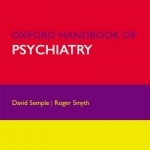
Oxford Handbook of Psychiatry
Medical and Book
App
By downloading this “frame” app you will be given the opportunity to PURCHASE the latest version...

RealWorld Orthopaedics
Medical and Health & Fitness
App
* FEATURED IN AAOS' MULTIMEDIA EDUCATION CENTER * * Now compatible with iOS 8 * RealWorld...
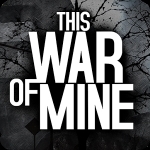
The War Of Mine
Games
App
Description "If you've not already played this brilliant, heart-wrenching game, then mobile is as...
"The door slid open and Clarke knew it was time to die." What a way to start the book. Kass Morgan dives right into her storyline with an in-your-face opener. It took a bit of time before I, as the reader realized what this book was about. She began by setting up a number of characters, switching between perspectives, to quickly introduce you to the players. Those people who will have the biggest impact upon the storyline.
Each character is thrown into the mix, destined to be sent to Earth. The first in a long, long time. While not all make it, we are still treated with back stories and past relationships. Had the author not included those scenes, her characters would have been much more difficult to relate to. You come to briefly understand what the person goes through, exactly why he/she is so angry and hurt, and what they each did to become subjected to the fate of the 100. Personally, I would have preferred that greater attention had been given to character development rather than relationship development.
The Earth was unlivable for so long, and yet they send these 100 "children" as guinea pigs, rather than trained professionals. People who could colonize, build shelters, feed the colony, study the land and environment, or even tend to the ill. Instead, these youths are forced to come together with a common goal - survival.
One gets to a certain point in the novel and then realizes they don't entirely know what these different living situations/names mean. Of course, the Walden and Arcadian people seem to be of a lower class, economic, and social standing than the Phoenix. Walden also had an outbreak at one point that had to be quarantined. But beyond that? I'm not entirely sure what the distinctions are. Clearly the Phoenix people are "posh", with foreign accents, prone to extravagances and taking what they have for granted. But how did they come to be in that, dare I say, caste to begins with? Were people settled based upon their original locations on Earth? Or perhaps based upon the money/knowledge they could provide? Unfortunately, that aspect of the story is not very clearly explained. It seems that the author took more time to focus on the intricacies of the relationships than the world building.
Sometimes the author was redundant, choosing to repeat the same fears/desire over and over again. Yes, we understand that the medicine is missing. Was it flung from the ship before the crash or during? Can they survive without it? We don't know yet, but if we didn't realize the medicine was important the first time it was mentioned... We certainly realized it after the tenth.
This book has a very unique concept in that it combines the post-apocalyptic Hunger Games or Divergent-type Earth with space. While it may exist in other novels, I've not yet read something similar. Where it does seem to follow typical YA novels is the fact that it has a love triangle. Those seem like they are a requirement, as they are in most popular young adult novels. (HG, Divergent, TMI, Vampire Diaries, etc.)
There is a bit of mystery in the book as well. It seems that the reason one of the characters is arrested must be kept a secret, even from the reader. The author continuously has the girl think to herself, 'Why isn't he asking me about my confinement?', 'He's happy, this is for the best [that he doesn't know.]', and even has her love interest say "I heard a rumor about a girl on Phoenix who was arrested for..." Yes, there was a dramatic pause. And no, he does not finish his sentence. After the third or fourth time, the author finally reveals the girl's situation during a flashback.
Throughout the novel, the author develops the relationship between two main characters. Unfortunately, it's a bit jarring and sporadic. It quickly jumps from bitter hatred from the moment they step foot on Earth to reconciliation after one act, then back to hatred. Again, after one act. While relationships can be a roller coaster, this is a bit too authentic to the carnival ride.
The relationship is not perfect, especially when she has a second possible love interest. A guy who after only a short while, thinks of only her before he falls asleep. That girl must be something. The first time they really spend any time together, he decides that making out is the best course of action. Much to the dismay of her other love interest, though it does not dissuade him. Sound familiar?
It doesn't take long before he snaps at her and their brief... Whatever it was is over. Or is it?
They must be masochists, because it seems they're just gluttons for punishment and emotional, gut wrenching hurt... Or just those that don't learn from history. (Doomed to repeat it and all that.) Who would continuously subject themselves to that kind of torment? Move on and let yourself heal. It's not a post-apocalyptic world that only the two of you can repopulate... There are other individuals in camp with you. (Like the second guy you may or may not like, but that you certainly make out with in the woods.) But that's just my perspective.
While I found myself bemused and skeptical at times about certain aspects of the book, none of those times corresponded to the purposefully exaggerated environment that they must adapt to on Earth. Rather it is the progression of relationships, situations characters find themselves in, and utterly disastrous karmic intervention. Seriously, they must have really messed with the world for it to so perfectly separate two lovers as it does.
I suspected there would be a particular plot twist and unsurprisingly it came to fruition approximately 98% of the way through the book. I'm intrigued to see where the author takes it and how it will develop in the sequel - The 100: Day
21 (which is next on my review list!)
I find myself enjoying the read, dispute the obvious flaws one notices whilst reading it. If you take it as an easy, enjoyable read - then that is what you will come away with. If you expect it to be a fantastic piece that delves into the human psyche to truly draw you into a character's life and relationships - then you will be quite disappointed. Overall, I would recommend this novel to those who enjoy dystopian, teen romance series.
Each character is thrown into the mix, destined to be sent to Earth. The first in a long, long time. While not all make it, we are still treated with back stories and past relationships. Had the author not included those scenes, her characters would have been much more difficult to relate to. You come to briefly understand what the person goes through, exactly why he/she is so angry and hurt, and what they each did to become subjected to the fate of the 100. Personally, I would have preferred that greater attention had been given to character development rather than relationship development.
The Earth was unlivable for so long, and yet they send these 100 "children" as guinea pigs, rather than trained professionals. People who could colonize, build shelters, feed the colony, study the land and environment, or even tend to the ill. Instead, these youths are forced to come together with a common goal - survival.
One gets to a certain point in the novel and then realizes they don't entirely know what these different living situations/names mean. Of course, the Walden and Arcadian people seem to be of a lower class, economic, and social standing than the Phoenix. Walden also had an outbreak at one point that had to be quarantined. But beyond that? I'm not entirely sure what the distinctions are. Clearly the Phoenix people are "posh", with foreign accents, prone to extravagances and taking what they have for granted. But how did they come to be in that, dare I say, caste to begins with? Were people settled based upon their original locations on Earth? Or perhaps based upon the money/knowledge they could provide? Unfortunately, that aspect of the story is not very clearly explained. It seems that the author took more time to focus on the intricacies of the relationships than the world building.
Sometimes the author was redundant, choosing to repeat the same fears/desire over and over again. Yes, we understand that the medicine is missing. Was it flung from the ship before the crash or during? Can they survive without it? We don't know yet, but if we didn't realize the medicine was important the first time it was mentioned... We certainly realized it after the tenth.
This book has a very unique concept in that it combines the post-apocalyptic Hunger Games or Divergent-type Earth with space. While it may exist in other novels, I've not yet read something similar. Where it does seem to follow typical YA novels is the fact that it has a love triangle. Those seem like they are a requirement, as they are in most popular young adult novels. (HG, Divergent, TMI, Vampire Diaries, etc.)
There is a bit of mystery in the book as well. It seems that the reason one of the characters is arrested must be kept a secret, even from the reader. The author continuously has the girl think to herself, 'Why isn't he asking me about my confinement?', 'He's happy, this is for the best [that he doesn't know.]', and even has her love interest say "I heard a rumor about a girl on Phoenix who was arrested for..." Yes, there was a dramatic pause. And no, he does not finish his sentence. After the third or fourth time, the author finally reveals the girl's situation during a flashback.
Throughout the novel, the author develops the relationship between two main characters. Unfortunately, it's a bit jarring and sporadic. It quickly jumps from bitter hatred from the moment they step foot on Earth to reconciliation after one act, then back to hatred. Again, after one act. While relationships can be a roller coaster, this is a bit too authentic to the carnival ride.
The relationship is not perfect, especially when she has a second possible love interest. A guy who after only a short while, thinks of only her before he falls asleep. That girl must be something. The first time they really spend any time together, he decides that making out is the best course of action. Much to the dismay of her other love interest, though it does not dissuade him. Sound familiar?
It doesn't take long before he snaps at her and their brief... Whatever it was is over. Or is it?
They must be masochists, because it seems they're just gluttons for punishment and emotional, gut wrenching hurt... Or just those that don't learn from history. (Doomed to repeat it and all that.) Who would continuously subject themselves to that kind of torment? Move on and let yourself heal. It's not a post-apocalyptic world that only the two of you can repopulate... There are other individuals in camp with you. (Like the second guy you may or may not like, but that you certainly make out with in the woods.) But that's just my perspective.
While I found myself bemused and skeptical at times about certain aspects of the book, none of those times corresponded to the purposefully exaggerated environment that they must adapt to on Earth. Rather it is the progression of relationships, situations characters find themselves in, and utterly disastrous karmic intervention. Seriously, they must have really messed with the world for it to so perfectly separate two lovers as it does.
I suspected there would be a particular plot twist and unsurprisingly it came to fruition approximately 98% of the way through the book. I'm intrigued to see where the author takes it and how it will develop in the sequel - The 100: Day
21 (which is next on my review list!)
I find myself enjoying the read, dispute the obvious flaws one notices whilst reading it. If you take it as an easy, enjoyable read - then that is what you will come away with. If you expect it to be a fantastic piece that delves into the human psyche to truly draw you into a character's life and relationships - then you will be quite disappointed. Overall, I would recommend this novel to those who enjoy dystopian, teen romance series.
